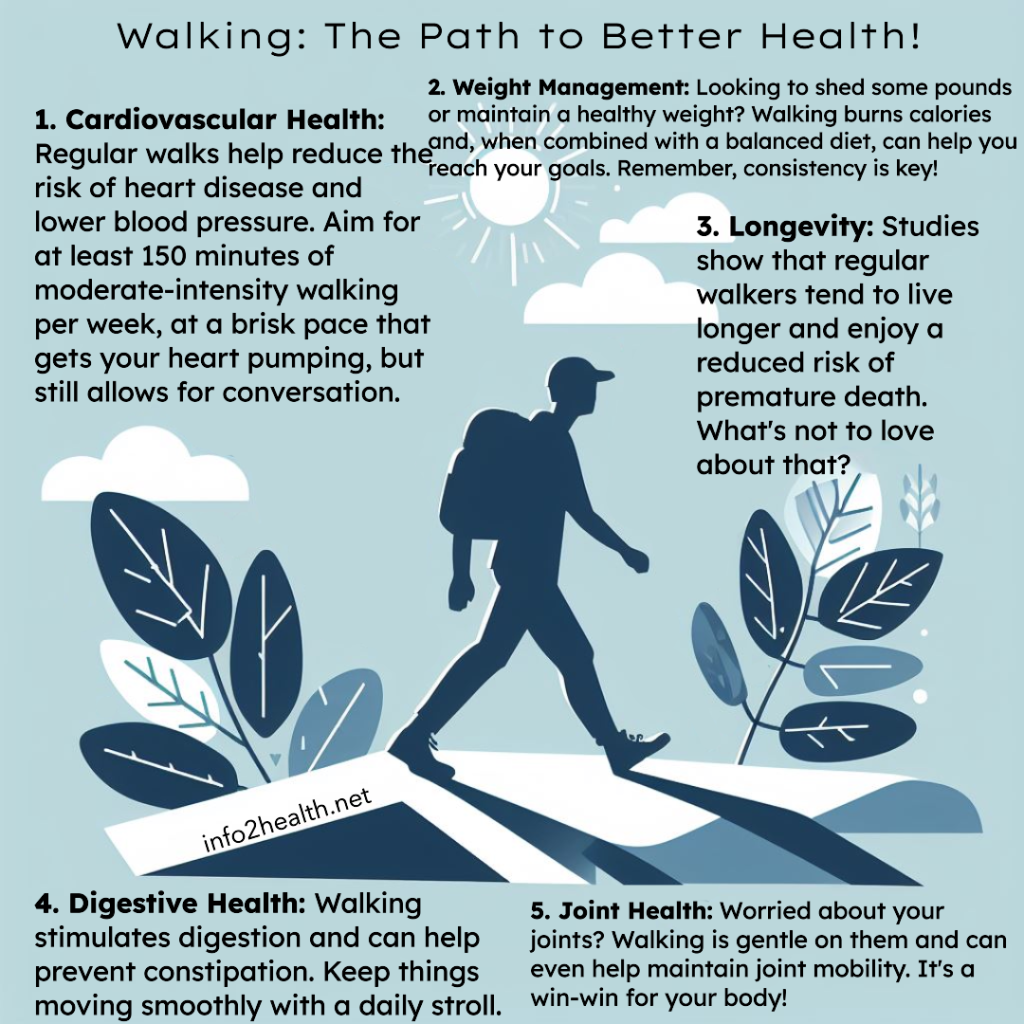The Numerous Health Benefits of Walking
Walking stands out as one of the simplest yet most rewarding forms of exercise available. It’s accessible to everyone, costs nothing, requires no special equipment, and can be done virtually anywhere and at any time. But what specific advantages can regular walking offer for your health?
Enhanced Heart Health
Regular walking can significantly reduce blood pressure, cholesterol levels, and the risk of heart disease. To reap the cardiovascular benefits, aim for a minimum of 30 minutes of brisk walking each day at a moderate intensity, enough to raise your heart rate and make you breathe harder. This routine can effectively strengthen your heart muscle over time.
Improved Blood Sugar Control
Research demonstrates that walking contributes to better blood sugar control and enhanced insulin sensitivity, making it particularly beneficial for individuals with type 2 diabetes. For visible improvements, consider taking short walks throughout the day or start with 30-60 minutes of walking sessions on 3-5 days a week.
Stronger Bones and Muscles
The impact of walking stimulates the development of stronger bones by increasing bone density. It also strengthens leg muscles, enhancing balance and coordination. To experience these benefits, aim for at least 30 minutes of daily walking.
Stress Relief and Enhanced Mood
A daily walk can serve as an effective stress reliever and mood enhancer. Walking triggers the release of feel-good endorphins while reducing stress hormones like cortisol. Whenever possible, opt for outdoor walks to maximize the mental health benefits. Ideally, aim for 30-45 minutes.
Effective Weight Control
Walking serves as a simple and accessible way to support weight loss and maintenance. For consistent weight management, strive for 60+ minutes of moderate-intensity walking daily, while also paying attention to your diet.
Increased Energy Levels
Daily walking is an excellent means of boosting energy levels and reducing fatigue. It can make you feel more alert and awake when incorporated into your daily routine. Aim for at least 20-30 minutes a day.
Extended Longevity
Research indicates that regular walking is associated with a longer lifespan. In fact, one study found that older adults who walked for at least 20 minutes a day had a significantly reduced risk of early death compared to sedentary individuals. Walking not only reduces the risk of chronic diseases but also enhances overall health, contributing to an extended life. To maximize this effect, aim for 30-60 minutes of brisk walking each day. Commencing a regular walking routine in midlife can accumulate extra years of life over time, making walking a straightforward and beneficial investment in your future well-being.
Daily
The key is to walk for a minimum of 30 minutes daily at a brisk intensity that elevates your heart rate. This will ensure that you consistently receive all the health benefits of a walking routine. So why wait? Start your journey to better health today by incorporating regular walking into your daily routine!

